Struggling to master your finances? I’ve been there—drowning in money stress until I found the right tools: financial literacy books. In this post, I’m sharing the 6 must-read financial literacy books that transformed my money management game and can do the same for you in 2025. These aren’t just books—they’re blueprints to build wealth, decode crypto, and outsmart your budget. Whether you’re a beginner or levelling up, these picks cut through the noise. Ready to take control? Dive into our list of the best financial literacy books and start mastering money today! (Note: Affiliate links included.)
What is Financial literacy?
Let’s break it into two parts. By finance, we mean knowing about managing money, and by literacy, we mean being educated in a specific field. So technically, by financial literacy, we suggest educating yourself in managing money, but if we define it properly, we can elaborate: Financial literacy is all about understanding how money works in everyday life.
It’s like learning the ABCs of managing your cash budgeting, saving, spending wisely, and planning for the future. Think of it as a toolkit that helps you make smart decisions, like avoiding debt or investing in things that grow your wealth. When you’re financially literate, you’re less stressed about money because you know how to handle it. It’s not about being a math whiz; it’s about having the confidence to take control of your financial life and build a stable future.
You will likely ask yourself, “Is financial literacy a skill?” This question has a very straightforward and obvious answer: “Yes.” It is the most significant and appropriate talent one may acquire. As an illustration, let us look at a person who makes over $1000 a day. However, because he lacks financial literacy, he will spend his money on things that are completely unimportant for his present and future, which will cause him to lose hope for both.
But what if that person was financially literate, then he would have used that important “50 30 20 rule”? What is the 50/30/20 rule?
The 50/30/20 rule is a simple way to manage your money without overcomplicating things. Here’s how it works: Picture your income as a pie. Use 50% for the essentials—like rent, groceries, and bills. Then, take 30% for fun stuff, like eating out, hobbies, or shopping. Finally, dedicate 20% to saving or paying off debt. It’s not about being perfect but having a clear plan to keep your finances balanced. This rule helps you live for today while still planning for tomorrow—without stressing too much about every little dollar.
Now, the challenge is how to learn financial literacy. The first stage is to read books. “What is the best financial book of all time?”
Here’s a list of the 6 top financial literacy books for beginners.
Also, explore these places for financial freedom the following:
- What is Generational wealth and how to build it?
- “Hypothecation and Rehypothecation: Which Collateral Strategy Benefits You Most?”
Rich Dad Poor Dad: A Simple Summary
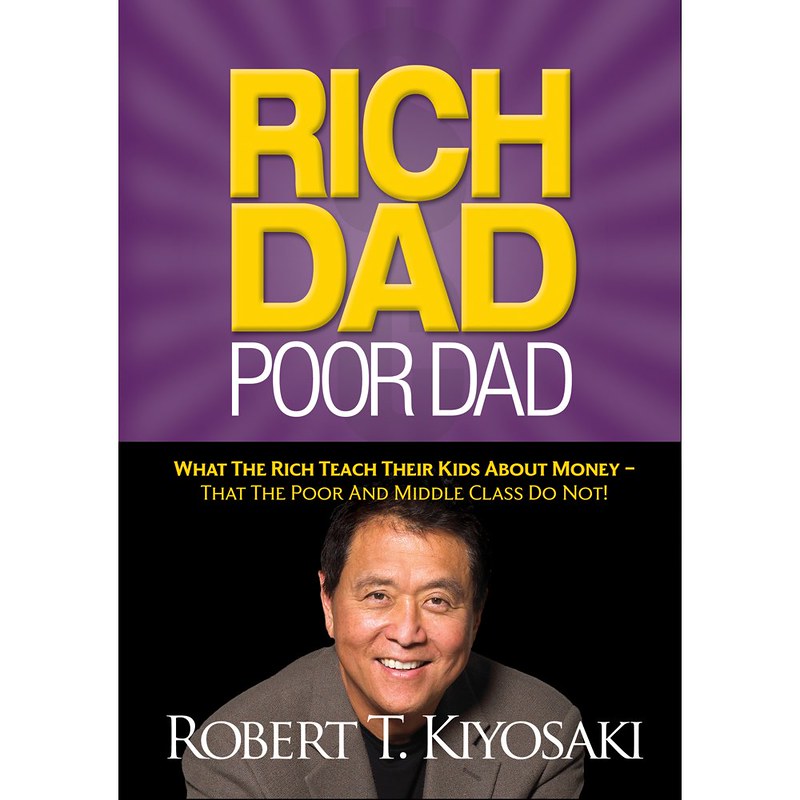
“Rich Dad Poor Dad” by Robert Kiyosaki is a popular personal finance book that teaches important lessons about money and wealth-building. The story is based on Kiyosaki’s childhood, where he learned financial principles from two “dads”: his real dad (Poor Dad), who was well-educated but struggled with money, and his friend’s dad (Rich Dad), who was financially savvy and successful.
The main idea of the book is that your mindset about money matters more than how much you earn. Rich Dad taught Kiyosaki that rich people don’t work for money—they make money work for them. Instead of relying only on a paycheck, they focus on building assets like businesses, real estate, and investments that generate income even when they’re not working.
One big lesson is the difference between assets and liabilities. Assets are things that put money in your pocket, like rental properties or stocks. Liabilities take money out, like expensive cars or credit card debt. Rich Dad emphasized buying assets and avoiding unnecessary liabilities.
Another key takeaway is the importance of financial education. Schools often teach us how to get a job but not how to manage money or invest wisely. Rich Dad encouraged learning about investing, entrepreneurship, and understanding how money flows.
Kiyosaki also talks about taking risks and overcoming fear. He says being afraid to fail holds people back from trying new opportunities. Building wealth requires stepping out of your comfort zone and thinking differently about money.
In short, “Rich Dad Poor Dad” teaches that becoming wealthy isn’t about earning a high salary—it’s about changing your mindset, focusing on assets, and learning how to make money work for you. It’s a guide to breaking free from the cycle of living paycheck to paycheck and creating lasting financial freedom.
“This is a must-read book for anyone eager to delve into the subject, and it’s available for purchase at this link: Rich dad Poor dad
Think and Grow Rich: A Simple Summary
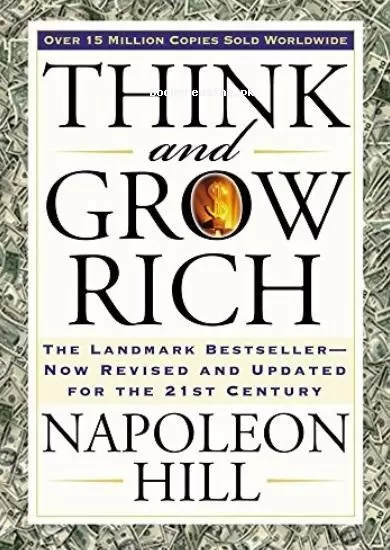
“Think and Grow Rich” by Napoleon Hill is a timeless self-help classic that dives into the mindset and habits needed to achieve success and wealth. Written in the early 20th century, it’s based on interviews with some of the most successful people of the time, including Andrew Carnegie, Henry Ford, and Thomas Edison. The book isn’t just about money—it’s about developing the right attitude and taking action to turn your dreams into reality.
The core idea is simple: Your thoughts shape your life. If you think positively and focus on your goals, you can attract success. Hill outlines 13 principles to help you grow rich, both financially and personally. Some of the big ideas include:
- Desire: You need a burning desire for what you want. Without a clear goal, you won’t have the motivation to push through challenges.
- Faith: Believe in yourself and your ability to succeed. Confidence and positivity are key to overcoming obstacles.
- Action: Dreams alone aren’t enough—you must take consistent steps toward your goals.
- Persistence: Success doesn’t happen overnight. Keep going, even when things get tough.
- Mastermind Group: Surround yourself with like-minded, supportive people who can guide and inspire you.
Hill also talks about the power of imagination—visualizing your goals as if they’ve already happened—and the importance of decision-making. He warns against procrastination and negative thinking, which can hold you back.
One famous concept is the idea of a “burning desire” paired with a detailed plan. For example, instead of saying, “I want to be rich,” you should define exactly how much money you want and create a roadmap to get there.
In short, “Think and Grow Rich” is about training your mind to focus on success, building strong habits, and taking action. It’s not just about getting rich—it’s about creating a life of purpose, confidence, and achievement. The lessons still resonate today because they’re all about mindset, effort, and believing in yourself.
“This is a must-read book for anyone eager to delve into the subject, and it’s available for purchase at this link: Think and Grow Rich book
The Intelligent Investor: A Simple Summary
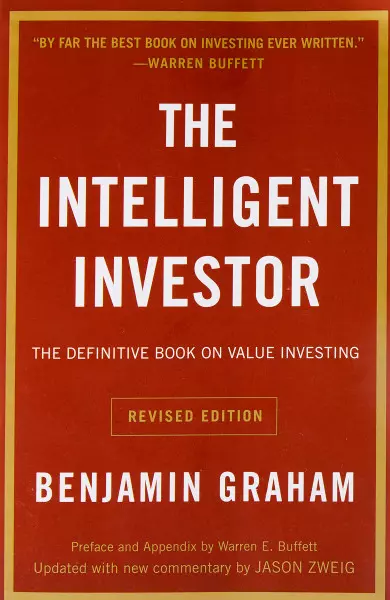
“The Intelligent Investor” by Benjamin Graham is a classic book on investing that teaches you how to grow your money wisely and safely. Often called the “bible of investing,” it’s written for everyday people who want to make smart decisions with their money, not just Wall Street experts. The book focuses on a strategy called value investing, which is all about buying stocks or assets at a fair price and holding onto them for the long term.
Graham introduces two types of investors:
- Defensive Investors: These are people who want simple, low-risk ways to invest. They focus on things like index funds or stable, well-known companies.
- Enterprising Investors: These are more hands-on folks who research and pick individual stocks to try and beat the market.
One big lesson is the importance of margin of safety —buying investments at a price lower than their true value so you’re protected if things go wrong. Graham also warns against emotional investing, like chasing quick profits or panicking during market crashes. Instead, he encourages patience and discipline.
Another key idea is the difference between investing and speculating. Investing means putting your money into something with solid fundamentals while speculating is like gambling—hoping for quick wins without real research. Graham advises sticking to the former.
He also talks about the famous Mr. Market metaphor. Imagine the stock market as a moody person offering to buy or sell stocks every day. Sometimes Mr. Market is overly excited (prices are high), and sometimes he’s depressed (prices are low). The trick is to ignore his mood swings and focus on the real value of what you’re buying.
In short, “The Intelligent Investor” teaches you to be patient, think long-term, and avoid letting emotions drive your decisions. It’s not about getting rich overnight—it’s about building wealth steadily and protecting yourself from big mistakes. These timeless principles still guide investors today.
The Psychology of Money: A Simple Summary
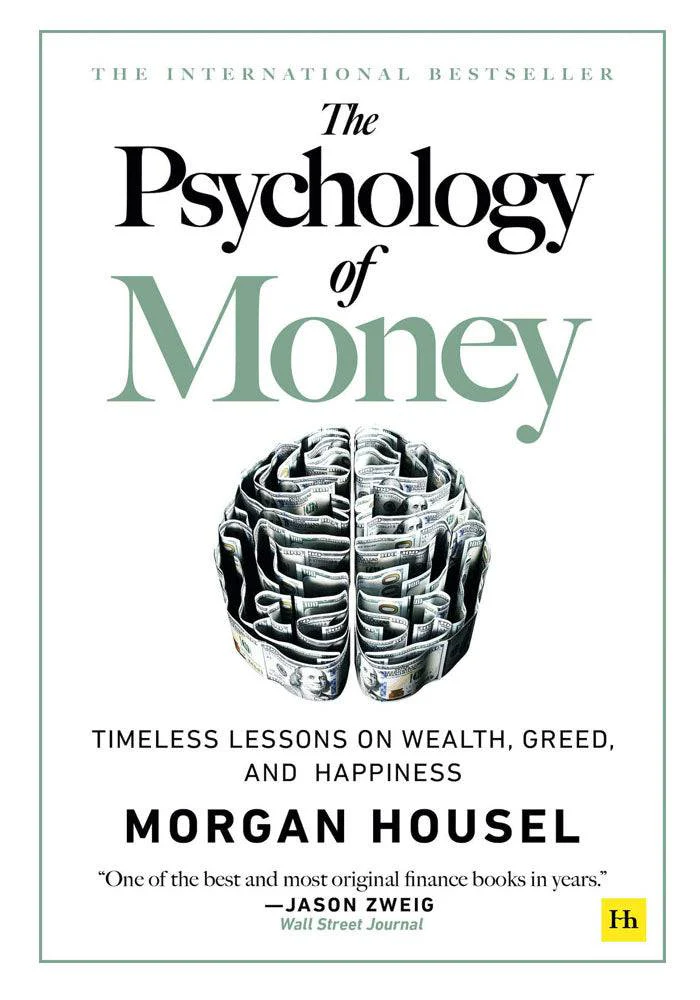
“The Psychology of Money” by Morgan Housel is a book that dives into how our thoughts, emotions, and behaviours shape the way we handle money. Unlike other finance books filled with numbers and formulas, this one focuses on real-life stories and timeless lessons about wealth, happiness, and decision-making.
One big idea is that money isn’t just about math, it’s about mindset. Two people can earn the same amount but end up in very different financial situations because of their habits, values, and choices. For example, saving consistently over time often matters more than earning a huge salary.
Housel emphasizes the importance of time and patience. Wealth grows slowly, like planting seeds in a garden. Trying to get rich quickly usually leads to mistakes or losses. He also talks about luck and risk —sometimes success comes from being in the right place at the right time, and sometimes failure happens despite doing everything right. Understanding this helps you stay humble and avoid blaming yourself or others.
Another key lesson is that happiness comes from aligning your money with your values. Spending on things that truly matter to you (like family, health, or experiences) brings more joy than chasing luxury items or comparing yourself to others.
The book also warns against greed and overconfidence. Chasing more money than you need can lead to stress and poor decisions. Instead, focus on having “enough”—a mindset that brings peace and contentment.
In short, “The Psychology of Money” teaches that managing money isn’t just about numbers—it’s about understanding yourself. By staying patient, avoiding comparisons, and using money as a tool for happiness, you can build a better relationship with wealth and live a more fulfilling life. These lessons are simple but powerful, making the book a favourite for anyone wanting to improve their financial mindset.
“This is a must-read book for anyone eager to delve into the subject, and it’s available for purchase at this link: The intelligent Investor complete book.
The Richest Man in Babylon: A Simple Summary
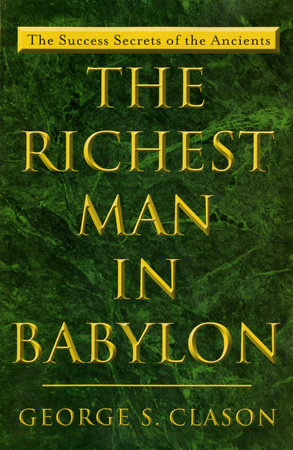
“A favourite of many people, ‘The Richest Man in Babylon’ by George S. Clason is a timeless classic that teaches financial wisdom through simple parables set in ancient Babylon.”
This book uses storytelling to share practical lessons about money and wealth-building. Written as a series of short stories, it feels more like reading fables than a finance guide, making it easy to understand and remember. The main character, Arkad, is known as the richest man in Babylon, and his secrets to success revolve around timeless principles anyone can follow.
One of the most famous lessons is “Pay yourself first.” This means setting aside at least 10% of your income for savings or investments before spending on anything else. Over time, this small habit builds wealth. Another key idea is to control your expenses —live below your means, no matter how much you earn, so you can save and invest more.
The book also stresses the importance of learning and growing your skills to increase your earning potential. It warns against taking risky advice from those who aren’t financially wise and encourages seeking knowledge from experienced mentors. Additionally, it highlights the power of compounding growth —letting your money work for you over time.
In one story, a hardworking man learns to invest wisely by lending his gold to trustworthy opportunities, showing the value of patience and due diligence. Another tale emphasizes the rewards of persistence and hard work in achieving financial goals.
In short, “The Richest Man in Babylon” is loved for its straightforward advice: Save consistently, spend wisely, invest carefully, and grow your knowledge. These principles are as relevant today as they were thousands of years ago, helping countless readers take control of their finances and build lasting wealth.
“This is a must-read book for anyone eager to delve into the subject, and it’s available for purchase at this link:The Richest Man in Babylon
Your Money or Your Life: A Simple Summary
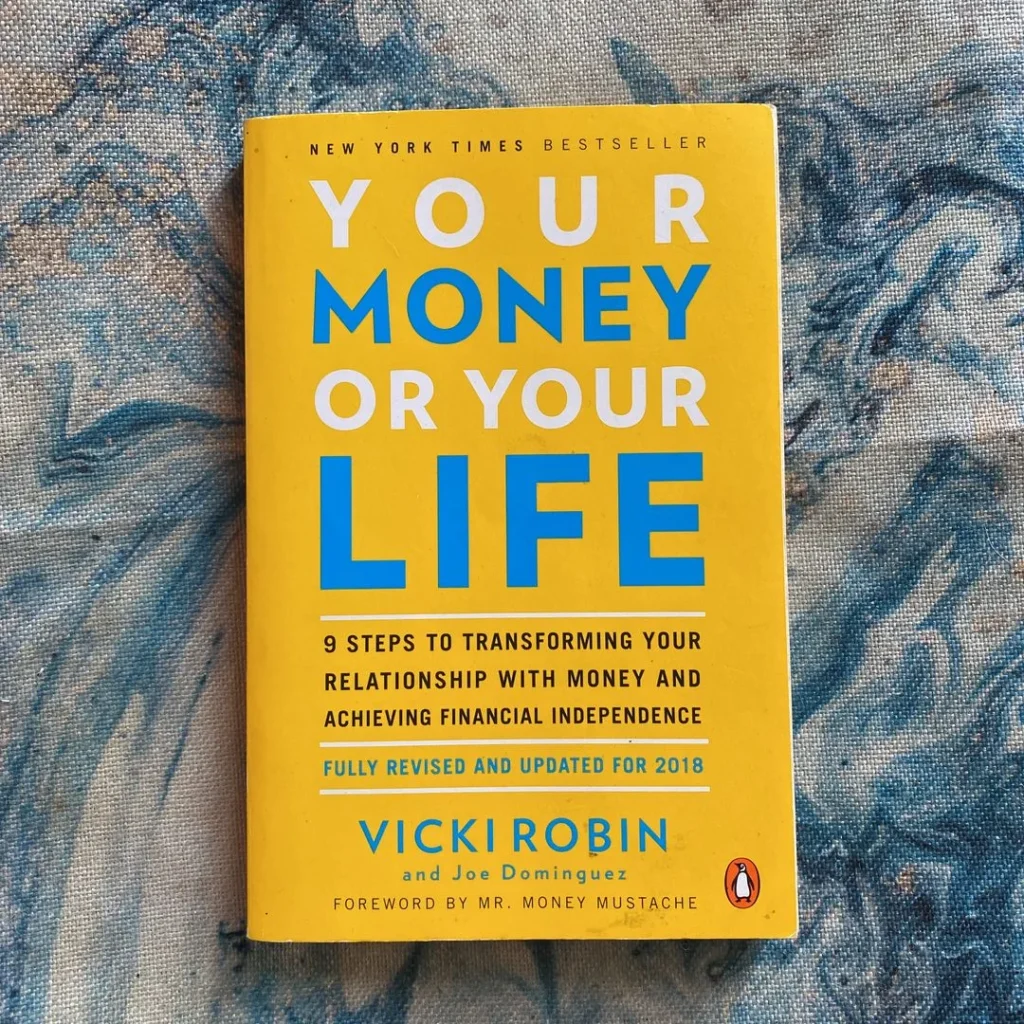
“Your Money or Your Life” by Vicki Robin and Joe Dominguez is a life-changing book that helps you rethink your relationship with money and find true financial independence. It’s not just about getting rich—it’s about living a fulfilling life where money works for you, not the other way around.
The book introduces a 9-step program to transform how you handle money. Here’s the gist:
1. Track Every Penny You Spend: The first step is awareness—know exactly where your money goes. Write down every expense and categorize it. This helps you see if your spending aligns with your values.
2. Calculate Your “Life Energy”: Your money represents your time and effort (your “life energy”). The book encourages you to consider how many hours you work to afford something. For example, is that $5 coffee worth 30 minutes of your life?
3. Create a Spending Plan: Instead of calling it a budget, the authors frame it as a “spending plan.” Focus on spending only on things that truly matter to you. Cut out expenses that don’t bring joy or align with your goals.
4. Aim for Financial Independence: The ultimate goal is to reach a point where you no longer need to work for money. You can build enough wealth to live off the interest or returns by saving aggressively and investing wisely.
5. Shift from Consumerism to Contentment: The book challenges the idea that more money equals more happiness. Instead, it encourages you to focus on simplicity, gratitude, and finding fulfilment outside of material possessions.
6. Define “Enough”: One of the most powerful lessons is learning to say, “I have enough.” When you stop chasing more money and stuff, you free yourself from the “rat race” and can focus on what matters—like relationships, passions, and personal growth.
In short, “Your Money or Your Life” teaches you to take control of your finances while redefining what wealth means to you. It’s about breaking free from the cycle of endless work and spending, so you can live a life full of purpose, freedom, and peace. These timeless principles resonate with anyone looking to escape financial stress and create a meaningful life.
“This is a must-read book for anyone eager to delve into the subject, and it’s available for purchase at this link:Your Money or Your Life
Conclusion: Empowering Yourself Through Financial Literacy
In a world where financial decisions shape nearly every aspect of our lives, understanding the principles of money management is no longer optional—it’s essential. Financial literacy isn’t just about numbers; it’s about empowerment, freedom, and creating a life aligned with your values and goals. The six books we’ve explored in this blog—Rich Dad Poor Dad, The Intelligent Investor, Your Money or Your Life, The Richest Man in Babylon, and others—are more than just guides to wealth accumulation. They are blueprints for thinking differently about money, investing wisely, and building a future that reflects what truly matters to you.
From Robert Kiyosaki’s lessons on assets versus liabilities in Rich Dad Poor Dad to Benjamin Graham’s timeless wisdom on value investing in The Intelligent Investor, these works provide diverse perspectives on how to approach finances intelligently. Meanwhile, Your Life or Your Money challenges us to rethink our relationship with work and purpose, while The Richest Man in Babylon offers ancient yet ever-relevant principles for saving, investing, and growing wealth.
Financial literacy is not an endpoint but a journey—a continuous process of learning, adapting, and applying knowledge to real-life situations. By immersing yourself in these foundational texts, you’re taking a significant step toward mastering your financial destiny. Remember, the goal isn’t merely to accumulate wealth but to use it as a tool to live intentionally, support loved ones, and contribute meaningfully to the world around you.
So, whether you’re just starting your financial education or looking to deepen your understanding, let these books be your companions on the path to financial clarity and confidence. After all, when you take control of your finances, you’re not just securing your future—you’re reclaiming your freedom.



3 thoughts on “6 Must-Read Financial Literacy Books to Master Money in 2025”